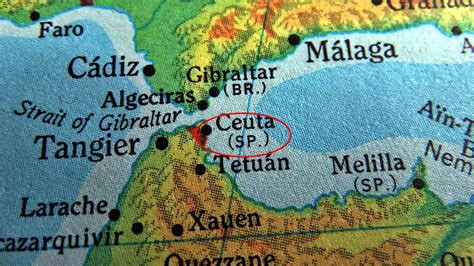Pressure From Morocco Is Forcing a Rethink for Spain’s North African Enclaves
CEUTA, Spain—In March 2020, Morocco closed its land borders around Spain’s North African enclaves of Ceuta and Melilla, citing the need to prevent the spread of COVID-19. They have remained closed since, and with no indication of when they might reopen amid diplomatic tensions between Spain and Morocco, the two enclaves have been forced to confront their dependency on a newly assertive Morocco and come up with a radically different economic model.
The economic picture in the enclaves, each of which hosts some 85,000 residents, has rarely been pretty. Today, about half the salaried workers in each are employed by the Spanish government, but they have some of the highest unemployment rates in Europe: nearly 30 percent in Ceuta and 20 percent in Melilla. Before the pandemic, much of the enclaves’ private enterprise depended on a particular form of border trade known as atypical commerce, in which goods would be shipped into the enclaves from around the world, then driven to the border with Morocco, where thousands of Moroccan “porters,” mostly women who would have entered the enclaves that morning, would be waiting to carry them into Morocco for a few euros. These huge, backbreaking packages still counted as hand luggage, avoiding Moroccan customs taxes. ...
Read more on WPR.
Ceuta is a Spanish on the north coast of Africa. Bordered by Morocco, it lies along the boundary between the Mediterranean Sea and the Atlantic Ocean.
Melilla is an autonomous city of Spain located on the northwest coast of Africa, sharing a border with Morocco.
La Linea may become an autonomous area as well.
Despite Spain's so-called claim to Gibraltar, it won't release claim to Ceuta and Melilla on the African continent.
